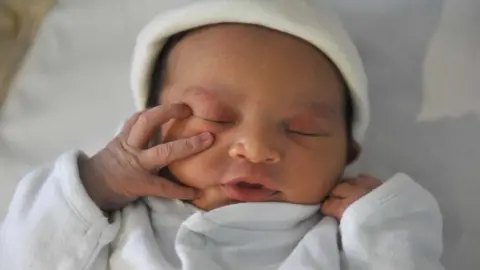Maternity units 'too defensive' and failing to learn from mistakes
 BBC
BBCSome maternity units are too defensive when births go wrong and causing a danger to patients, the chief inspector of hospitals in England has said.
Prof Ted Baker of the Care Quality Commission said health workers need to learn from errors.
He told the Health and Social Care Committee that individuals are "blamed" rather than the system.
Dr Bill Kirkup, who reviewed failings at Morecambe Bay NHS Trust, said some units "actively conceal" mistakes.
In 2015, Dr Kirkup produced a report into the "dysfunctional" unit at Furness General Hospital in Barrow following the deaths of three mothers and 16 babies.
In it he said "unnecessary deaths" were caused in part by the unit's "failure to recognise the severity" of its problems.
Speaking to the parliamentary committee, Dr Kirkup, who is currently investigating baby deaths at East Kent Hospitals Trust, said there is still a "spectrum of performance" which ranges from units that are "brilliant" to "a few that aren't able to or won't learn and improve".
He said: "When they get in sufficient trouble their response is to stop communicating with the outside world and disguise the problems they've got."
 Graham Eva
Graham EvaProf Baker said at the "root" of the problems is "a significant cultural" issue of "defensiveness", with 38% of maternity services "requiring improvement for safety".
"Defensiveness leads to things not being transparent and units not willing to apologise when things go wrong," he told the committee's review into the safety of maternity services.
"It's easier to blame someone than accept this is a systematic problem," he added.
"Anything that drives this defensiveness and blame is dangerous for services.
"We need to do everything we can to eradicate blame from the system.
"We've got to accept humans are fallible and will make mistakes, the important thing is to make sure we learn from those mistakes."
He said further training is needed as well as a culture shift in the failing units.
